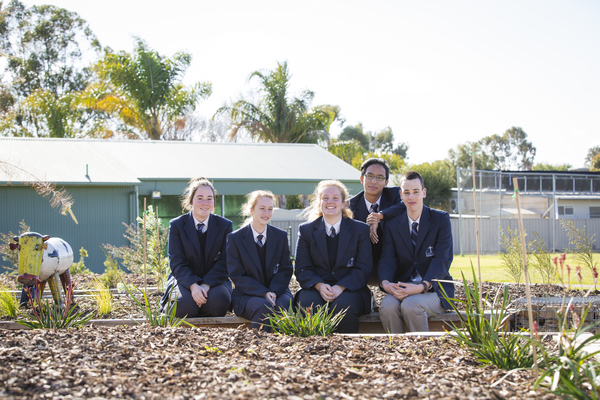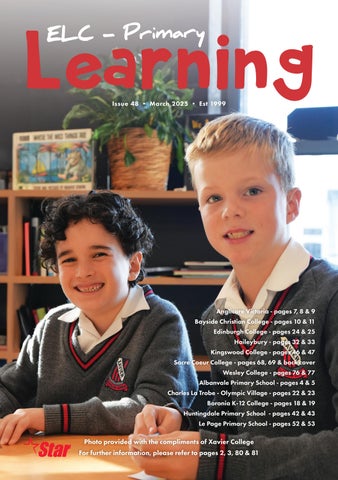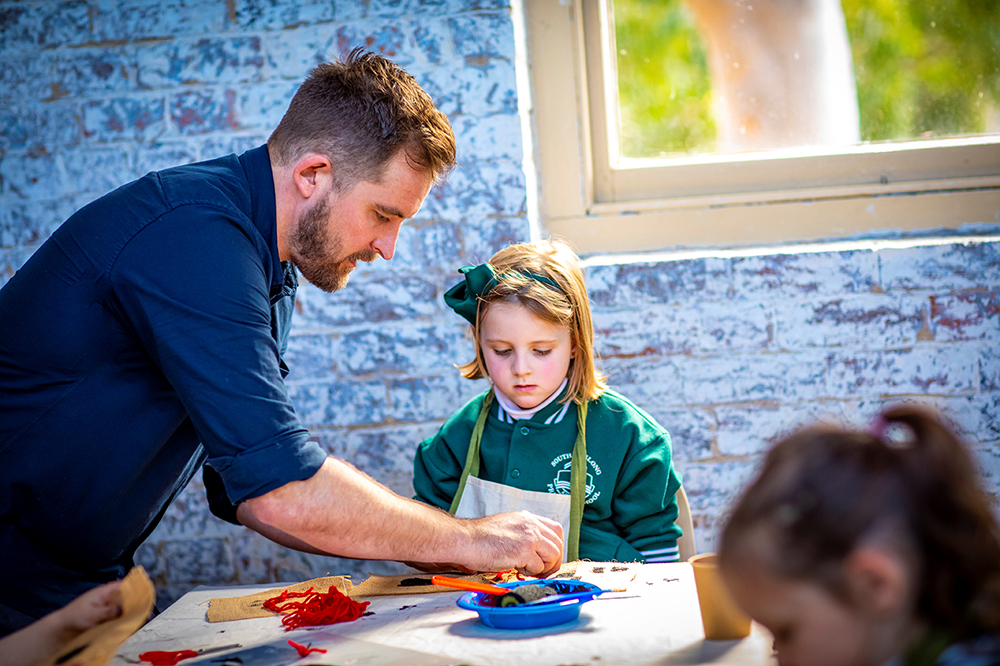It’s always good to see the work that our children do in schools but a natural question to ask is, “How is this different to work done in other schools?” In an age when all schools will be following a standard state curriculum you would expect the work to be very similar. In many ways this is exactly what we find. There is much that Christian schools have in common with all other Australian schools but there is also a radical difference. There is also much that student work from Australian schools will have in common. However, student work done in Christian schools flows from a different starting point.
A Christian school delivers the curriculum to its students as a disclosure of God’s creation. This includes the natural world and the world of human achievement. The learning, and hence the work that students unfold in a Christian school, is based on the fundamental belief that the world belongs to God and that He has made Jesus ruler and redeemer of all things. The work that students do in other schools flows from a different starting point and is based on different fundamental beliefs. Some of these beliefs could be that humans determine knowledge and meaning, or that education is a competition for the best life or that human autonomy is the most important thing, or any of a number of other starting points.
Belief in God as creator changes the way we think about students. In a Christian school the students are seen as unique creations in the image of God, inherently rebellious, and thoroughly redeemable because of Jesus. Students are treated with intrinsic dignity and yet realistically as people prone to sin. The work they do is in response to God’s goodness as creator and redeemer, celebrating the creator and the good essence of his world,discovering the gifts that God has placed within them; anticipating the good works that He has prepared for them to do in life, and being equipped to be useful in his world. The motivation to do well is not for personal gain or kudos but ultimately for God’s glory.
Of course this is idealistic. Students don’t naturally think this way but it is the foundation from which they are taught in the Christian school and the basis of their formation as people. It is the worldview or world story in which their education is situated, just as every education is situated within an assumed understanding of the nature of life and the world. Christian education is not dependent upon students having their own Christian faith commitment or being coerced into an acceptance of that faith-although it is the prayerful desire that all students come to faith. Teaching Christianly is showing students what it’s like to live in God’s world as God’s person.
Christian education doesn’t have to be full of ‘God talk’ or devoted to ‘Christian’ content. You won’t see overt Christian references in every piece of student work. Education from a biblical perspective simply views all of life from the vantage point of the big picture biblical story of the world that is centred in Jesus Christ. It acknowledges that all knowledge is God’s knowledge, that there is purpose behind all understanding and that life is moving towards a destiny of a restored world reconciled by God’s gracious act of redemption in Jesus. So English, Maths, Science, History and all the other elements of the curriculum are studied as lenses through which to understand God’s world, his purposes and the students’ place within these.
While Christian schools use the subjects and learning as lenses, it is important to remember that no learning is neutral. Those accepted disciplines of knowledge come to us already laden with values and assumptions about the ‘way things are’. Therefore, as teachers introduce students to these curriculum subjects, they seek to discern and expose these unstated beliefs and present God’s world as an integral whole rather than fragmented pieces of information that seem to have no purpose outside of the role of serving the student’s personal gain.
As you enjoy the contributions of students within our Christian schools, I encourage you see them as examples of learning that are biblically grounded, academically rigorous and culturally engaging.
By Dr Ken Dickens, Chief Executive Officer, Christian Education National – www.cen.edu.au/index.php/shortcode/what-is-christian-education
A different starting point












